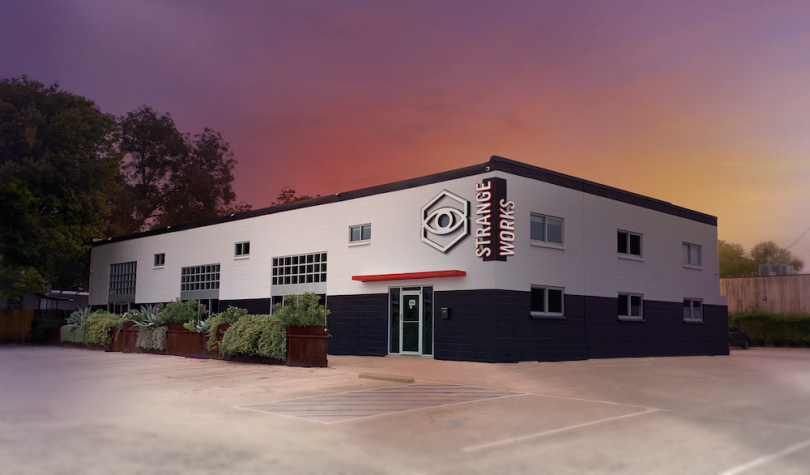
Whurley compares being a serial entrepreneur to having a bad gambling habit.
“I keep telling myself ‘just one more time, one more score and I’m out of the game for good,’” he said. “But my wife has heard that at least three times already.”
So why does he keep coming back? For one, he keeps coming out ahead.
It gets easier the more you do it.”
In 2010 William Hurley, also known as whurley, co-founded Chaotic Moon Studios — a creative technology company focused on innovation and design. There he made a splash by helping create things like a mind-controlled skateboard and a shopping cart that follows shoppers. Five years later, the company was acquired by Accenture for an undisclosed sum. In 2015, whurley launched retirement savings startup Honest Dollar, which was acquired by Goldman Sachs just one year later.
After the acquisition, whurley found himself working for Goldman Sachs — a great place to work, by his account — but yearning to do his own thing again. This time founding quantum computing startup Strangeworks, where he currently works.
Starting three different companies in less than a decade may seem like a daunting task to your average entrepreneur, but not whurley.
“It gets easier the more you do it. It’s just like training for a marathon or being a triathlete or racecar driver. The more you are in that stress, the more you get comfortable with it. And if you’re successful, it’s even harder to quit because you have all these advantages that you didn’t have last time,” he said.
One of these advantages is experience. With every new venture, whurley gained knowledge about how to start and lead a company. We asked him to share some of that knowledge with us.

Starting your own company seems like a very personal experience, so how do you know it’s time to leave and move on?
Every startup outgrows every founder. You should know when you’re no longer providing massive leverage to the company you started. And you should know when it’s time to step away. It’s like being in a relationship: You know in your heart if it’s a forever thing or not. Being transparent with the people you work with and being honest with yourself about when to exit is ridiculously important.
What sacrifices does it take to be a successful entrepreneur?
Your life. [Laughs] I’ve had a number of roles as an investor, I started and sold two startups and I’m on my third one, and people always ask me “What’s the secret to your success?” I got asked that question once when I was speaking at a WeWork event. It was five o’clock in the afternoon, and the offices were empty, so I said “See all of these offices that are empty? These are startups that will be out of business because it takes an immense amount of work.”
Startups don’t like significant others, other jobs, families or hobbies. Starting a company is a big deal and it can be extremely thankless. I think everyone should try it. But it’s not for everyone.
Starting a company is a big deal and it can be extremely thankless.”
When you have to make a tough decision, how do you ensure you’re making the right call?
Being objective is the one key thing for any entrepreneur. Using data, not drama, will take you further than you think. Emotionally, you may think that you need to just drive on, but if the writing’s on the wall, you have to be able to look at things objectively. It’s extremely hard. You need that emotional drive to spend all those hours late at night working, not seeing your family when there’s no such thing as a work-life balance.
My best advice for founders is that there’s no decision that you can’t sleep on for 24 to 48 hours. I guarantee if you wait and come back with fresh eyes, the decision will look different.
Is the pressure you feel as a founder external or internal?
It’s everything. If you’re doing your job right, you’re putting a certain amount of pressure on yourself. You gotta keep pushing yourself. But if you’re doing anything exciting, other people are going to put pressure on you, too. There’s no way around that — startups are a high-pressure environment.
But you learn to live with that pressure, and you learn to not internalize it, because that’s the worst thing you can do. When you mess up — and you will mess up — you have to own it and move on.




